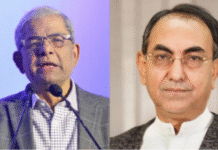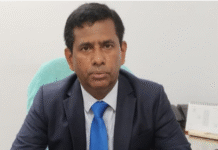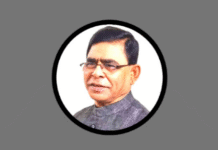Uncertainty looms over arrival of foreign poll observers
The arrival of a large number of international poll observers to monitor the 11th parliamentary elections of Bangladesh is yet to be confirmed due to the home and foreign ministries’ apathy in giving them the required approval, diplomatic sources said.
The local observers were, on the other hand, earlier directed by the election commission (EC) secretary Helaluddin Ahmed to observe the voting “like a statue”.
In this context, there are questions about how actively the local and foreign observers will be able to carry out their responsibilities of monitoring the voting process.
Foreign diplomatic sources said a 32-member team of Bangkok-based Asian Network for Free Elections (ANFREL) is supposed to observe the elections on behalf of Washington-based National Democratic Institute (NDI).
NDI doubts whether all the observers will be able to come to Bangladesh since, until last night (Thursday), only six of the 32 ANFREL members were provided approval.
Officials of the foreign ministry and election commission secretariats declined to comment on the matter.
The home and foreign ministries take the final decisions on foreign observers following the EC’s request.
An NDI delegation, which came to Bangladesh earlier this month, told this correspondent that they could not finalise preparations to observe polls as they took the decision to come at the last moment.
That is why NDI delegated ANFREL to carry out the task quickly and within limited budget.
The NDI delegation held meetings with concerned persons of the government and requested them to cooperate with ANFREL.
On condition of anonymity, a consultant of the NDI told Prothom Alo on Wednesday that there is uncertainty over the arrival of all 32 members of ANFREL to Bangladesh.
“There are also questions about whether they will be able to carry out their task because it’s very tough to take last minute preparations,” the consultant added.
Former chief election commissioner ATM Shamsul Huda said, “Observing an election is not a task of one or two days. It has to begin earlier. In that case, there’re doubts about the functioning of foreign observers if they are yet to get approval to come.”
USA, Switzerland, the European Union and other development partners put emphasis on observing the elections through the Election Working Group (EWG), an alliance of election observing bodies, as a small number of foreign observers will come.
The EWG was given necessary support but the observers were directed not to take photographs or videos inside the polling booths. The observers can’t give interviews to the media while on duty, the EC directives say.
According to the EC, alongside the foreign observers, 81 local bodies applied for permission to observe the election.
Over 34,000 members of those bodies are expected to monitor the polls but the number might be reduced to 25,900 or less.
The election commission, however, threatened to cancel the registration of the local observing bodies if they do anyhing that might question the credibility of election process.
A number of foreign diplomats said such directives of the EC will work as a serious hindrance for the observers.
At a roundtable in the capital on Tuesday, civil society body Broti CEO Sharmin Murshid said, “The manner in which the EC has issued directives, has made everyone sceptical. These directives also indicated EC’s lack of confidence.”
Former CEC ATM Shamsul Huda said, “The circumstances are very important for the election observers. It is not possible for them to work in an organised manner if circumstances are not conducive.”









